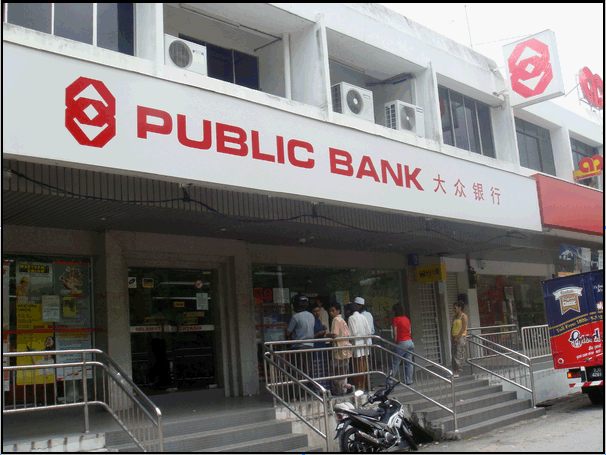Malaysia: Malaysia Finance Profile
2010/08/10

Key features of Malaysia’s regulatory reform
Regulatory reform initiatives in Malaysia focus on maintaining economic growth and stability as well as protecting consumers’ interests. Malaysia has been consistent in continuously improving its business environment to ensure that it is predictable and conducive, thus encouraging foreign direct investment and facilitating business. The privatisation policy introduced in 1986 and the liberalisation of the manufacturing sector in 1998 and 2003, as well as the progressive liberalisation of the service sector have been facilitated by the process of reforms. The process of regulatory reform is achieved in concert with initiatives to improve the public delivery system and reduce bureaucracy.
Legislation, Policy and Principles
Malaysia’s political leadership provides the direction for structural and regulatory reforms. The most recent initiative being the establishment of a high-level task force to improve the way government regulates businesses, by the then-Prime Minister of Malaysia Hon. Tun Abdullah Ahmad Haji Badawi. This Special Task Force to Facilitate Business (PEMUDAH) established in February 2007, comprises 23 eminent representatives from the public and private sectors, and reports directly to the Prime Minister.
Objectives of regulatory reform
The Malaysian government’s objective as articulated in PEMUDAH’s vision is to achieve a globally benchmarked, customer-centric, innovative and proactive public service in support of a vibrant, resilient and competitive economy and society, driven by the following values:
- a sense of urgency;
- proactive public-private sector collaboration;
- facilitation, not hampering;
- no more regulation than necessary; and
- zero tolerance for corruption.
- The terms of reference of PEMUDAH are to:
- review the status of the public services delivery system in terms of processes, procedures,
- legislation and human resource towards introducing improvements;
- study best practices in the private sector that can be adopted by the public sector;
- coordinate programmes across public sector agencies towards enhancing Malaysia’s competitiveness;
- monitor the implementation of policies, strategies and procedures aimed towards improving the efficiency and effectiveness of the public delivery system; and
- take appropriate actions in addressing issues regarding the public delivery system.
- Mechanisms and institutions to oversee regulatory reform
Overall institutional framework
The reform initiative to enhance the quality of public service through public-private sector collaboration was first initiated in 1983 through the implementation of the Malaysia Incorporated Policy. Under this policy, Consultative Panels were established in most government agencies to improve service delivery to the private sector. In 1990, the Sub-Committee of the Panel on Administrative Improvements was established to enhance public-private sector collaboration.
Oversight for overall reforms in the government administration is done by the Malaysian Administrative Modernisation and Planning Unit (MAMPU).
Key policy decision-making bodies
MAMPU, a central agency under the Prime Minister’s Department, plans and carries out research on the policies, standards, guidelines and modernisation strategic plans for the public sector. As the custodians of Malaysian laws, ministries establish ministerial committees which are responsible for the implementation of regulatory reforms.
The Attorney General’s Chambers (AGC) reviews Malaysian laws for the purpose of systematically developing and reforming the laws in line with current conditions and ensuring that laws meet the current needs of society. A committee comprising legal and judicial officers as well as academicians has been established for this purpose. Drafts of proposed laws prepared by AGC are tabled to the Cabinet for endorsement and Parliament for approval.
PEMUDAH which is co-chaired by the Chief Secretary to the government and the Immediate Past President of the Federation of Malaysian Manufacturers, assumes advisory and advocacy roles as it cooperates with ministries/agencies, states and local governments in recommending and overseeing reform initiatives to enhance Malaysia’s business environment. PEMUDAH reports directly to the Prime Minister.
PEMUDAH is an extension of the Malaysian Incorporated Policy. The fact that the Task Force is cochaired by both public and private sector is a reflection of the stance of the government to operationalise the close working relationship between the two sectors. PEMUDAH formed two working groups, namely:
Working Group on Efficiency Issues (WGEI)—focus on processes and procedures; and
Working Group on Policy Issues (WGPI)—focuses on policies and regulations that impact national competitiveness.
In addition, various task forces and focus groups have been established to hasten the process of improvement and ensure effective implementation of the initiatives:

[These working groups, task forces and focus groups are chaired and co-chaired by members of PEMUDAH, with relevant private and public sector members co-opted to work on the issues identified.
MM2H – Malaysia My 2nd Home Programme
DBKL – Kuala Lumpur City Hall]
Awareness and support
The support and commitment by the Prime Minister to address impediments in Malaysia’s business environment ensures that PEMUDAH will assume a bigger role in not only improving the public service delivery system, but also as an opportunity to ensure Malaysia’s competitiveness.
The establishment of various focus groups provides the platform for private sector participation to provide valuable inputs for regulatory reforms. In addition, PEMUDAH also organises various change management programmes to stress the importance of effective public-private sector collaboration in developing the nation’s competitiveness.
Transparency and predictability
The principles of good governance, transparency and accountability undergird the strategy to strengthen the effectiveness of Malaysia’s Public Service. It is compulsory for all government agencies to display their client’s charter and also the performance benchmarked against the client charter for public viewing. This information is also posted on the agencies’ websites.
Increasingly, ICT is being used in processes and procedures that have high level of interface with the public and businesses to further enhance transparency and predictability. All processes and procedures are available on ministries and government agencies’ websites as well as in customerfriendly hard-copies. For government procurement, e-bidding is now being implemented to enhance the process of transparency.
Improving the quality of regulation
Regulatory Tools, Systems and Processes for Improving the Quality of New Regulations
(Flow)
The process of adopting regulatory impact analysis is not mandated by law in Malaysia. However, government agencies undertake consultations with relevant stakeholders as and when necessary during the planning stages of drawing up of legislation and public policies. Many ministries adopt an open policy and encourage feedback from the private sector or public with regard to problems faced on a daily basis. Issues raised are also discussed in fora such as the PEMUDAH.
Regulatory Tools, Systems and Processes for Improving the Quality of New Regulations
(Stock)
Public consultations are routinely used by the Ministry of International Trade and Industry and Ministry of Finance to gauge feedback from the public on issues of public policy. Formal Dialogues chaired by ministers or senior officials are held with the relevant associations to obtain feedback and proposals, and to undertake necessary improvements. Malaysia’s international commitments in ASEAN as well as the World Trade Organisation (WTO) also require Malaysia to constantly review its existing regulations.
Future challenges and lessons learned in promoting regulatory reform
Lessons learned and progress made in promoting regulatory reform in the past five
years
One of the best examples of regulatory reform is that undertaken by the Ministry of Housing and Local Government (MHLG) on processing development proposals using the One-Stop Centre (OSC) approach. Prior to 2007, the rules and regulations for processing development proposals were under the purview of each local government. With the inception of OSC, the procedures and regulations that govern the processing of development proposals have been streamlined. This reform has reduced the time taken to process development proposals to less than 180 days, from 261 days previously.
Among other regulatory reforms undertaken in improving public delivery systems are:
reducing the number of procedures and processing time taken in the assessment of stamp duty for landed properties which involves the participation of both Inland Revenue Board of Malaysia and the Valuation and Property Services Department. Previously, the average processing time for manual applications ranged from 26-86 days involving nine manual steps. Following the review of the processes, it now only takes 10-16 days involving five steps via online application to Inland Revenue Board;
improving licensing procedures by developing an internet-based system for the application of business licences known as Business Licensing Electronic Support System (BLESS). BLESS serves as the One Submission Centre for submission of application for manufacturing licence, planning permission, building plan and land matters approval and operational licence approval;
reducing the processing time and improving the approval process of expatriate applications from 14 days to 7 days as well as improving immigration rules and regulations pertaining to expatriates’ spouses, family members and maids, whereby spouses, family members and maids are given the same treatment as their principals; and
simplifying forms and allowing online processing, as well as reducing the time for registration of freehold property from 144 days previously to only 41 days, via electronic processing and Valuation Information System (VIS); and 61 days through manual processing.
Future challenges
The constant and rapid changes in the current economic situation require the public service to
continuously implement reforms. The challenge for the public sector is the mindset change required of the public sector: from that of implementer to pacesetter and facilitator. For the private sector, the challenge is in appreciating the fact that it is an equal partner in enhancing national competitiveness, not just a recipient of the benefits of reform. Even as the public sector works to improve its delivery system, the private sector too must scrutinise its business model to ensure that it complements the efforts of the public sector.
Commercial Banking Report Q1 2011
- Malaysia News
-
- AFGHANISTAN: UNWTO: International tourism – strongest half-year results since 2010
- CHINA: Belt and Road Initiative "Malaysia and china"
- CHINA: Beijing looks to Malaysia for fast track to support in region
- MALAYSIA: International cooperation pushes Malaysia towards higher education goals
- BRUNEI : The next chapter for the Trans-Pacific Partnership
- INDIA: India-Malaysia Partnership In The Pink
- Trending Articles
-
- WORLD: Five reasons why global stock markets are surging
- JAPAN: Carmakers face billions in European CO2 fines from 2021
- CHINA: Going green: the changing face of corporate finance
- PAKISTAN: Nawaz Sharif to become PML-N chief again?
- CHINA: The downsides to Singapore’s education system: streaming, stress and suicides
- FRANCE: UK growth will trail Italy, France and Germany next year, says OECD











